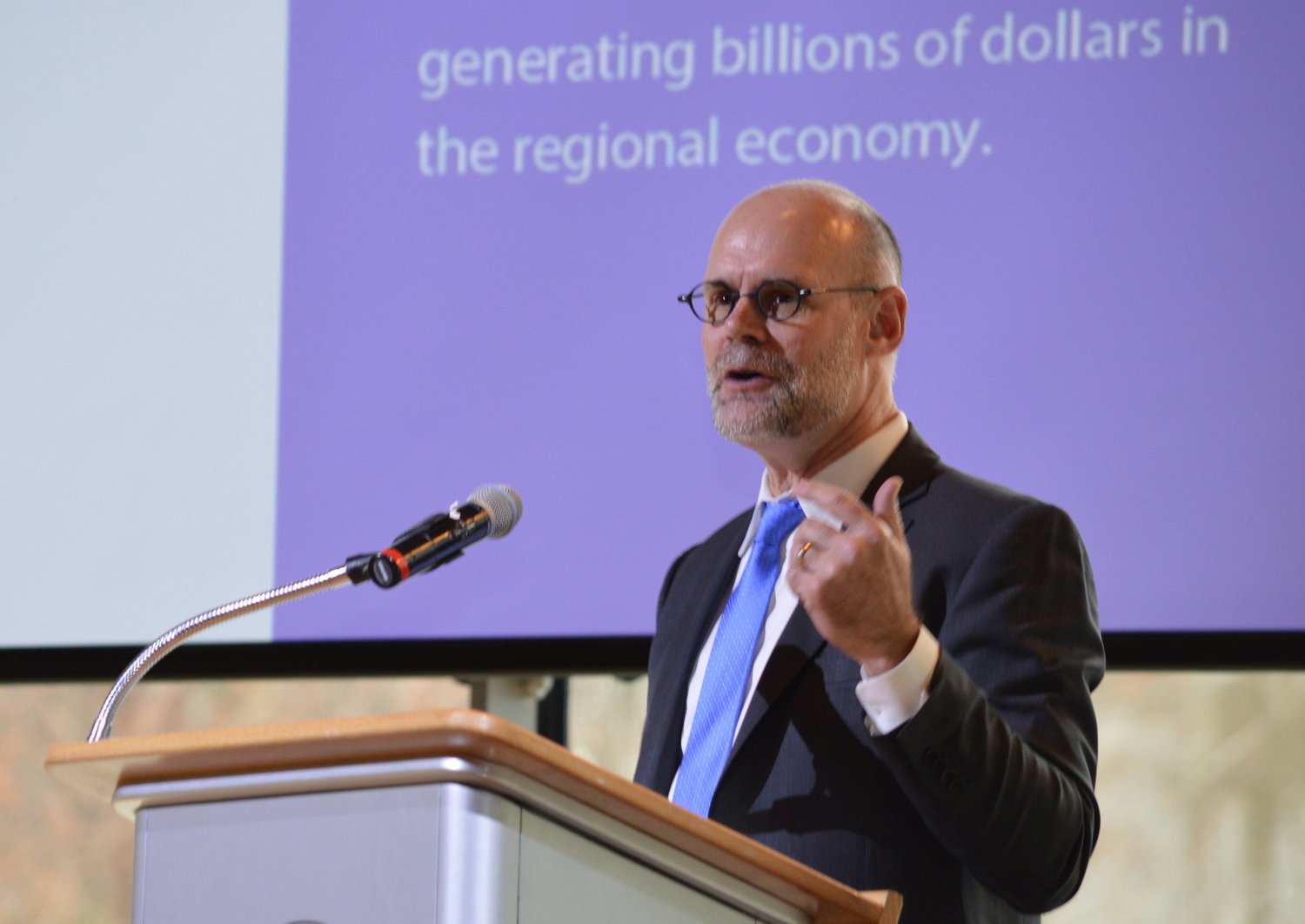Stakeholder collaboration and smart investments can inject billions of dollars into Northwest Arkansas’ healthcare economy, begin defining the region as a healthcare destination, and improve health outcomes and wellness.
Those are among the conclusions in Northwest Arkansas Healthcare: Assessment, Economic Impact and Vision for the Future, a report presented to the Northwest Arkansas Council. National healthcare research firm Tripp Umbach shared the firm’s key findings and recommendations today at the Northwest Arkansas Council’s Winter Meeting in Bentonville.
Increasing the availability of high-quality specialty care, increasing research and development, and expanding the region’s healthcare educational offerings would help recapture some of the $950 million a year spent by people who travel elsewhere to meet medical needs, and it would begin attracting patients to Northwest Arkansas. The region’s $2.7 billion healthcare sector can grow to become a far larger portion of the region’s economy by 2040. Further, the failure to take these steps could slow future economic growth, Tripp Umbach concludes.
- Establish a division of the Northwest Arkansas Council focused on healthcare transformation by July 1, 2019;
- Expand Graduate Medical Education (GME) in one to two years;
- Develop an interdisciplinary research institute in one to five years;
- Expand medical education and/or develop a four-year medical school in two to seven years.
“Northwest Arkansas’ economy has benefited greatly from collaboration, and given the impact of healthcare on our economy and quality of life, it was a natural that we take this important step,” said Susan Barrett, the CEO Emeritus at Mercy Hospital Northwest Arkansas who helped lead the region’s engagement with Tripp Umbach. “Regional educators and the healthcare providers know it’s necessary to work together to pursue these recommendations, and we are excited about our collective potential.”
The report indicates “the underperformance of the healthcare sector will negatively impact future health status, economic development, and Northwest Arkansas’ population growth” unless a healthcare-focused regional strategy is developed.” Tripp Umbach suggests the Northwest Arkansas Council lead the development of that strategy.
“Northwest Arkansas has the leadership and community assets necessary to transform the healthcare sector, to establish the region as a healthcare destination, and for the region to become a model for population health management,” said Paul Umbach, the healthcare and economic research firm’s founder. “Taking the right steps will result in billions of dollars added to the regional economy, thousands of high-paying jobs, and better health outcomes for regional residents.”
Northwest Arkansas falls short when it comes to its number of medical specialists. Major shortages exist in the number of cardiologists, neurologists and endocrinologists, the consultant reported. Family practice appears to be keeping up with the region’s growth.
The Northwest Arkansas research started in March last year, and Tripp Umbach engaged dozens of people in conversations about the healthcare economy. The firm’s team interviewed hospital administrators, physicians, educators, entrepreneurs, nonprofit organization leaders, corporate executives and biotech company owners. Many of those people were on a steering committee that assisted Tripp Umbach throughout 2018.
The firm made comparisons to peer regions used as Northwest Arkansas Council benchmarks such as Des Moines, Iowa, Durham-Chapel Hill, N.C., and Madison, Wis. Tripp Umbach added Spokane, Wash., and Evansville, Ind. – regions where significant healthcare advances have occurred.
The peer comparisons showed Northwest Arkansas lags behind the peers as just 7 percent of the region’s jobs are in the healthcare sector. It’s 17 percent in Durham-Chapel Hill, 12 percent in Spokane, and 11 percent in Evansville.
Pictured at the top: Paul Umbach, the founder of Tripp Umbach, described steps Northwest Arkansas leaders can take to advance the region’s $2.7 billion healthcare economy. He spoke at the Northwest Arkansas Council’s Winter Meeting today in Bentonville.











